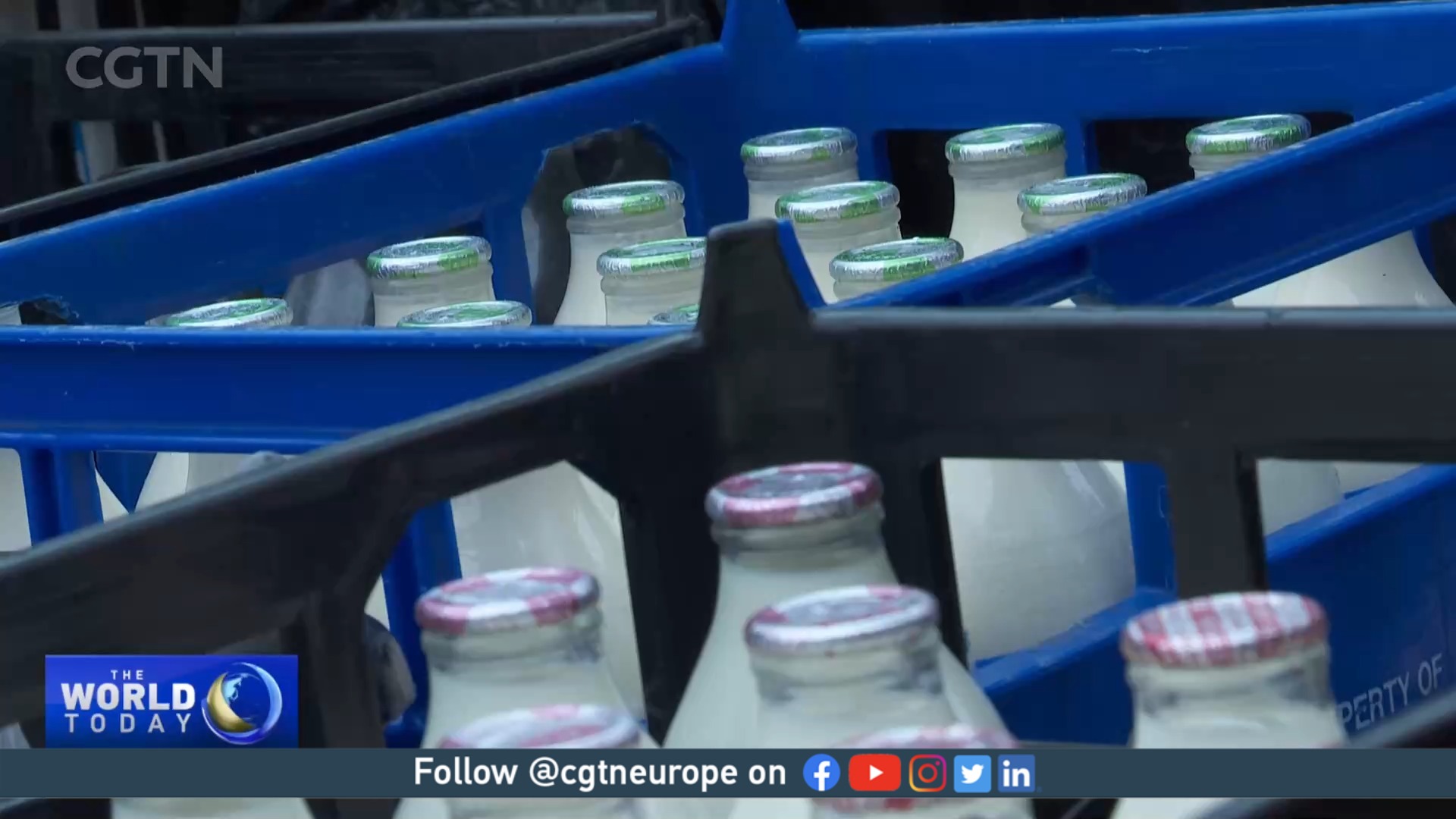03:03

It's not an easy time to be a dairy farmer. As the UN's Food and Agriculture Organization celebrates World Milk Day on Thursday, the industry is grappling with the fallout from spiraling prices that have seen the cost of milk go up by more than a third.
And now there's another, more long-term threat on the horizon: growing competition from plant-based rivals. Almond milk, oat milk, soy milk and coconut milk are surging in popularity, spurred by consumer concerns over the environment, health and animal rights.
The global dairy alternative market is now worth about $27.3 billion, according to researchers MarketsandMarkets. And that figure is expected to nearly double by 2027.
Coffee shops are on the front line of those changes. Cafetto co-owner Julian Parra says he has seen the number of customers ordering plant-based drinks balloon.
"Today, roughly five people out of 10 ask for dairy alternatives," he said, gesturing towards a sign above his coffee machine advertising plant-based milks. "Five years ago, it was probably about one in 10."
Survey results reflect that change, with 48 percent of British adults saying they use a plant-based milk alternative in their diet and 46 percent planning to cut their consumption of animal products in the future.
READ MORE
Home milk deliveries making a comeback
Donkey milk gains popularity in Albania
A rendezvous with tea and cluture in Cambridge
But it's not all bad news for the dairy industry. More than half of UK adults say they still consume dairy milk as part of their diet.
"The people who have milk alternatives at the moment, they also have fresh milk as well," says Hampstead Premier Dairies milkman Peter Bircham, who has been delivering milk door-to-door for four decades. "There's also a difference in terms of age. We tend to find that the children drink just the basic milk and it's the parents who have the milk alternatives."
One of dairy milk's traditional advantages over its plant-based rivals is price – a year ago, it cost half as much as alternative products. But since then, the cost of milk has shot up by more than 35 percent. The price of non-dairy products hasn't risen as steeply, narrowing the gap.
As the rivalry between milk and plant-based products heats up, a war over words has broken out. Dairy groups in countries around the world have called for the renaming of products including oat milk, plant-based yogurt and vegan cheese, saying consumers might mistake them for dairy. The EU has rejected that argument, but the UK is in the process of considering it. If the decision goes dairy's way, products like almond milk will have to rebrand.
But while rising prices and alternative products may be taking some of the shine off its crown, cow milk is still king – at least for now. The dairy market worldwide is worth more than $870 billion.
"Milk's an essential product," milkman Bircham says. "You have it on your cereals. You have it in your tea and your coffee. Nearly everyone has milk."

Subscribe to Storyboard: A weekly newsletter bringing you the best of CGTN every Friday